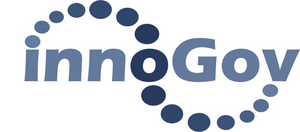The objective of the research project innoGov is to apply research methods from the field of process management to conception and improvement of administrative processes. Appropriate IT-supported e-Government solutions will be developed in order to support the process handling within public administration.
An evaluation and analysis of selected administrative processes will be practically realized to implement the project. Using methods of Information Systems Science, certain implementation scenarios of service realization in the public administration will be improved or newly designed. Considering recent Information and Communication Technology, e-Government solutions for further usage in the administration will be allocated in due form. In the context of implementation research, the objective is to accompany E-government projects of the state administration of Saarland. The reference to practice facilitates research quality and, at the same time, ensures a benefit for Saarland.
As a defined implementation scenario of the state administration of Saarland, the project “48-Stunden Serviceversprechen” is currently enforced. This project is an objective of the state administration of Saarland to improve service quality regarding its citizens as well as enterprises. Within the project, arrangements shall be developed which ensure a response time of 48 hours concerning incoming applications at the state authorities. The CCeGov of the IWi analyzes the possibilities of realizing service assurances and develops adequate realization scenarios.
Besides the research activities concerning the “48-Stunden Serviceversprechen”, the CCeGov of the IWi supports the state administration of Saarland in establishing a modern telephone service. As a first central contact point, the clients of the administration will be offered information and services. This effort is at the same time a major idea of the IT-strategy of the Federal Government. Using the identifier “D115” a nationwide, common administrative telephone number will be introduced.
Furthermore, both sub-projects include implications of the EU Service Directive to be considered within the particular context of the project. Embedded in the objectives of the Lisbon-Strategy, barriers and constraints of the service competition in the EU domestic market will be abolished to support the free, cross-border service interchange and the freedom of settlement. Thus, in the future, enterprises will be able to offer their services inside the EU by simplified technical and organizational rules.

